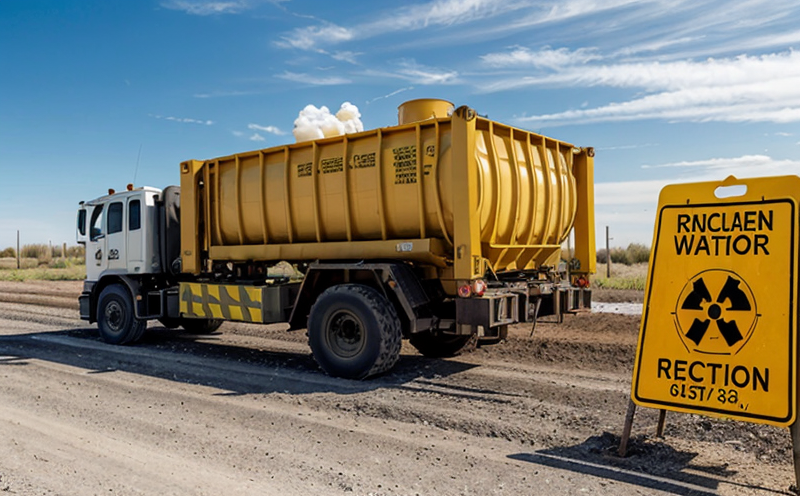ASTM D7287 Measurement of Gamma Activity in Waste Streams
The ASTM D7287 standard is a critical tool used to measure gamma activity levels within waste streams, ensuring compliance with regulatory standards and supporting the safe handling and disposal of radioactive and nuclear materials. This service plays an essential role in waste management and recycling testing by offering precise measurements that help identify potential health hazards associated with radioactive contamination.
The ASTM D7287 method involves the use of a gamma spectrometer to determine the concentration of radionuclides present in various waste streams, including industrial, medical, and research facilities. The process begins with sample collection, followed by preparation steps that ensure accurate measurement results. Once prepared, samples are analyzed using state-of-the-art gamma spectroscopy techniques, which provide detailed information on the types and quantities of radionuclides present.
The accuracy and reliability of ASTM D7287 measurements are paramount for industries handling radioactive waste materials. This service ensures that all stakeholders involved in waste management adhere to stringent safety protocols outlined by relevant regulatory bodies such as the International Atomic Energy Agency (IAEA) and Environmental Protection Agency (EPA). By leveraging this methodology, laboratories can contribute significantly towards minimizing risks linked with improper disposal practices.
In practice, ASTM D7287 testing is performed using specialized equipment designed specifically for measuring gamma radiation. These instruments typically consist of high-purity germanium detectors coupled with sophisticated data acquisition systems capable of processing raw spectral data into actionable insights. The resulting reports generated from these tests include comprehensive details about detected radionuclides along with their associated activities, allowing decision-makers to make informed choices regarding appropriate treatment methods or disposal strategies.
Compliance with ASTM D7287 is particularly important for organizations operating under stringent environmental regulations governing radioactive waste management. Failure to meet these requirements could lead to costly penalties and reputational damage; therefore, investing in accurate testing services like those offered by our laboratory can help mitigate such risks effectively.
It's worth noting that while ASTM D7287 focuses primarily on gamma activity measurement, it also contributes positively towards broader environmental sustainability efforts. By providing reliable data on radioactive contamination levels within waste streams, this service enables more efficient resource utilization and reduced ecological impact during disposal processes.
Industry Applications
| Industry Sector | Specific Application |
|---|---|
| Medical Facilities | Monitoring radioactive waste produced during diagnostic procedures. |
| Nuclear Power Plants | Evaluating decommissioning activities and ensuring safe closure. |
| Research Laboratories | Assessing experimental setups involving radioactive materials. |
| Hospitals | Verifying proper disposal methods for medical isotopes and other hazardous substances. |
| Type of Waste Stream | Collection Methodology |
|---|---|
| Industrial Wastes | Pump sampling through pipelines or containers. |
| Medical Waste | Manual collection from designated storage areas. |
| Research Lab Discards | Automated grab sampling at specific intervals. |
Quality and Reliability Assurance
- Adherence to ISO standards for radiation protection measures.
- Use of certified reference materials to calibrate gamma spectrometers accurately.
- Detailed documentation of all test procedures, including sample preparation instructions and instrument calibration records.
- Regular verification checks conducted by independent third parties to ensure continuous quality assurance practices are maintained.
Environmental and Sustainability Contributions
The measurement of gamma activity in waste streams through ASTM D7287 contributes significantly towards enhancing environmental sustainability. By identifying radioactive contaminants present within different types of waste materials, this service helps promote responsible disposal practices that minimize ecological impacts.
In addition to supporting regulatory compliance, accurate testing enables better resource utilization and encourages the development of safer alternatives for managing hazardous substances. Through precise measurement techniques, laboratories can contribute positively towards reducing overall risk factors associated with improper handling methods while simultaneously fostering greater trust among all parties involved in waste management operations.





